You know it is raining, has been raining, for days on end, not from looking at the sky, vast and gray and angry, but from the puddles of mud on downtrodden soil. An inverted sky in a puddle of muddy rain, an inverted narrative of tragedies past and yet to come, inverted lives shut away from the rest of the world in UNHCR white tents erected where the Syrian borders meet Turkey. Here, a warped, twisted version of life is going on; perverted, it can hardly be called life at all. And yet it is all that they have, these little, muddied faces with frostbitten skins and groaning stomachs and tearful eyes; fighting for their very lives, fighting for their next breath. Does ‘hope’ still reside among the ruins of war and death and suffering?
Anywhere else rain would have looked beautiful but not here. These people only get the cold sipping into their bones and the mud on their worn-out shoes. Rain isn’t a romantic notion for these children robbed so cruelly off their childhood.
“We hate the rain,” says a boy around nine or ten years old, “for us, it’s just more trouble.”
There are 17,000 Syrian refugees living inside some 4,000 tents in this camp, but the camera takes us to one particular tent in which three Kurdish Syrian girls, aged 10, 11 and 15, reside together, with the last two being sisters. They look older, though, world-weary and drawn; pain and tragedy tend to have that effect on unsuspecting, innocent faces.
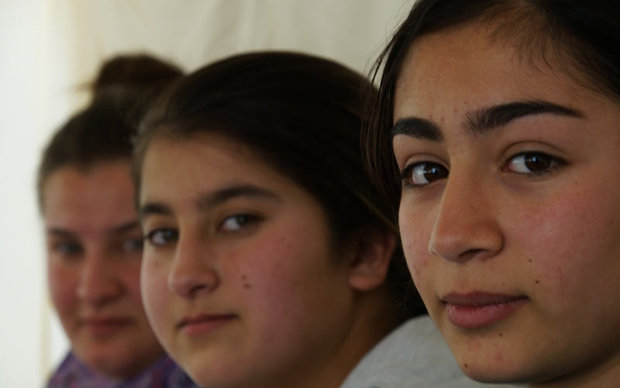
They have lost both their parents to the ISIL terrorists, been taken hostage to live unbearable, torturous days under constant sexual assault, an unending nightmare that plagues every second of their existence.
She is only ten years old, and she is pregnant. The three of them are. Displaced, orphaned, maltreated, raped and now pregnant. What does a ten year old know about all the horrors that have been done to her? Somewhere far away from here, and perhaps not too far, other children her age are playing with their toys and taking cookies out of jars and being completely oblivious to the anguish of little Syrian girls who have lost their everything in a blink of an eye and the world always finds a convenient way to turn a blind eye to the happenings that would upset its delicate stomach on a fine day under the peaceful rays of sun.
But not for Behrouz Nouranipour, no. Not for him. And not for those who had decided to sit down before the silver screen to watch all the horror and tragedies unfold as the girls narrate the story of their lives.
“A157 is the narrative of victims who have unfairly fallen into the cruel clutches of war. I hope the audience would be able to accompany us on this journey of truth toward war,” said Nouranipour, the director. “Most think of war as men’s game; that it’s the men who decide to wage wars but in the end it’s always the women and the children who first fall victim to it and have to pay the price.”

A157 is a terrible truth that you wish not to see; it brutally takes you out of your comfort zone and forces you to encounter the demons that you know you cannot fight, yet alone win against. It shows you everything you had thought to be true is a lie, and everything you had naïvely wished to be a lie is a horrendous reality.
“War doesn’t care how much you love your mother, your father, your sister, when it takes them away from you,” the oldest child, Roken, says in a plaintive voice, eyes vacantly looking somewhere past the camera. Her name, which means happy and laughter, is now a cruel reminder of the fact that there is nothing happy about her life anymore. She was hopeful to find her mother, hopeful that she was alive and would return to her and her little sister, and the A157 crew made every effort to find her. At the end, the efforts proved futile. The mother had been killed.
But it wasn’t just the mother these children had lost. They had lost their motherland and from here, there was nowhere else to go.
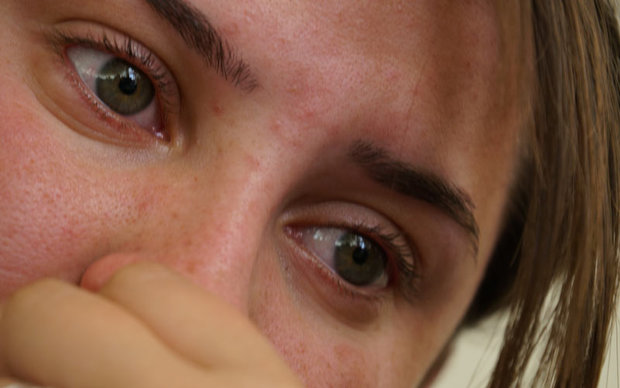
You have a choice to close your eyes, to walk away and pretend that everything is fine, that innocent children are not getting killed, beaten and raped on a daily basis while you peacefully sip your morning tea or as you tuck your own children in at night and think how much you love them and want them to have a good life. You also have a choice to stay, to see and feel and remember, this is what wars are doing to our humanity. Our humanity is the only thing worth saving, and in many cases, it is the first thing that we throw away to save our money, to keep our semblance of a normal life. We close our borders to these people who are fleeing from the horrors that we cannot even bear watching on TV, calling them potential terrorists and forcing them back into the clutches of death and despair. Some of us had even helped create this nightmare. Some of us pretend that we are trying to make it better. The refugee camps? Oh, they are a joke. Living in a tent, no running water, no heating system, you can barely find anything to eat. There is no entertainment, there is always the constant sense of fear and despair. And this all makes you wonder, what is the United Nations good for anyway? If it cannot stop children from getting raped and pregnant, if it cannot stop people from starvation, if it cannot make a child who has lost her family and her dreams, smile and become hopeful for a better future, then how does it dare call itself United Nations, when nations are falling apart, when humanity has become rotten, when a ten-year-old child unable to cope with the idea of having the child of her rapist inside her, attempts to kill herself time and time again until she finally succeeds?
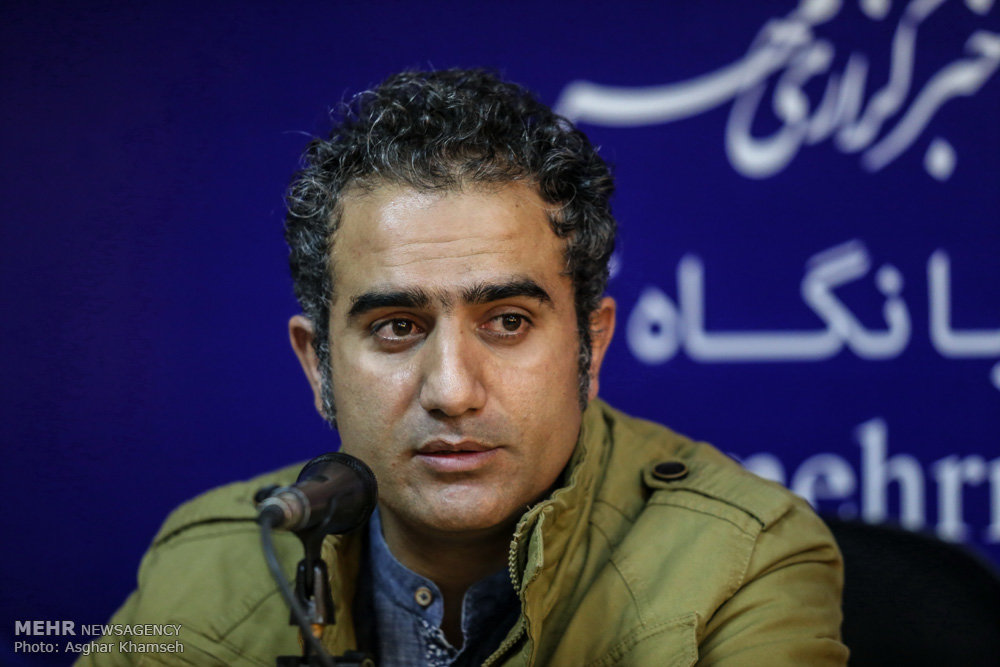
“I didn’t make the ending,” says Nouranipour with a lump in his throat and teary eyes, “Sollaf did. She gave the end to A157.”
A157 begins with the story of three little girls. It ends with the suicide of the youngest: Sollaf. But we know it doesn’t really end here. A157 is not a tragic movie with an unhappy ending; it’s the ongoing reality. We read about the terrorist attacks in the news every day, hundreds of people that lose their lives all around the world, and we become a little sad and a little shocked and a little angry, but it is short-lived and we move on. It is what they call the ‘collapse of compassion’, our way to cope with overwhelming tragedy and keep ourselves safe from being burned out by compassion for many sufferers. It is easier to keep a safe distance and allow our distorted sense of righteousness color our judgments. You have a choice to walk away, but for the sake of the 10-year old Sollaf who died with the baby inside her, for the sake of the 11-year-old Hilen who miscarried, and for the sake of the 15-year-old Roken who lost her mother only to become one to the child of her rapist, please don’t. Don’t walk away.
Please stay, watch and allow yourself to feel. Protect your humanity, not your happiness. I hope you all get a chance to watch A157. Maybe the next time you encounter a Syrian refugee on the streets, it helps you have a better understanding of the pain and suffering each one of them has gone through. Maybe the next time you listen to the hateful words of some politician, you can see the other side of the story and make a better judgment. Maybe the next time, you can wrench the shreds of your humanity from the clutches of politics, of media and propaganda, and keep it safe inside.
Maybe most of us cannot help Sollafs and Hilens and Rokens through their suffering, but we can be a human about it. And those of you who are in a position to actually help make this better, please do. After all, there is more to this world than economy, political propagandas, power struggles and presidential elections in the United States. There should be.
You can watch A157 trailer here.
Behrouz Nouranipour, born in 1982 in Sanandaj, Kurdistan Province, Iran, has received his Bachelor degree in Cinema at Soore University of Arts. He has directed more than 25 documentaries to this day. His latest production, A157, won the Special Jury Award at the international section of Iran’s Cinéma Vérité and received an honorary diploma at the full-length documentary section of International Shahid Avini Award.

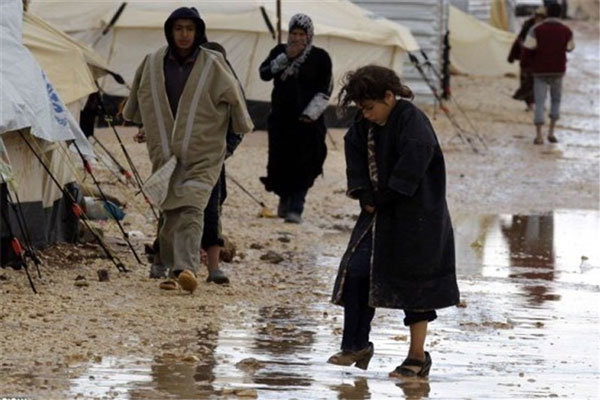
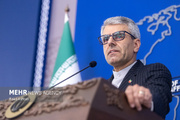
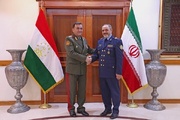

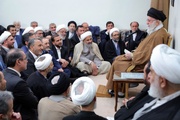
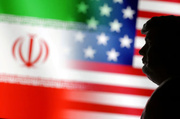
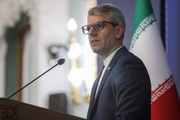

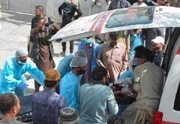
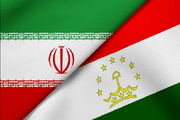
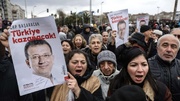
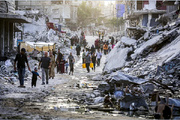

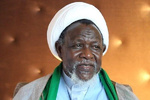


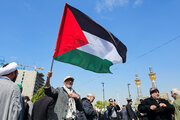

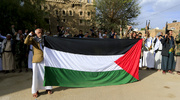



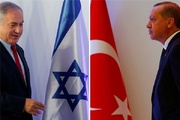
Your Comment